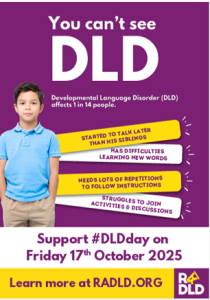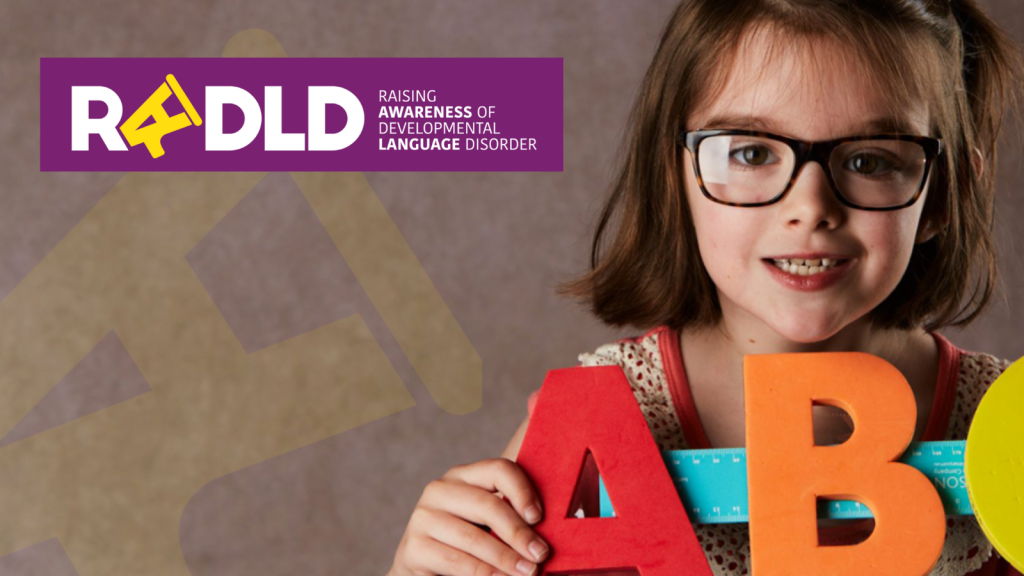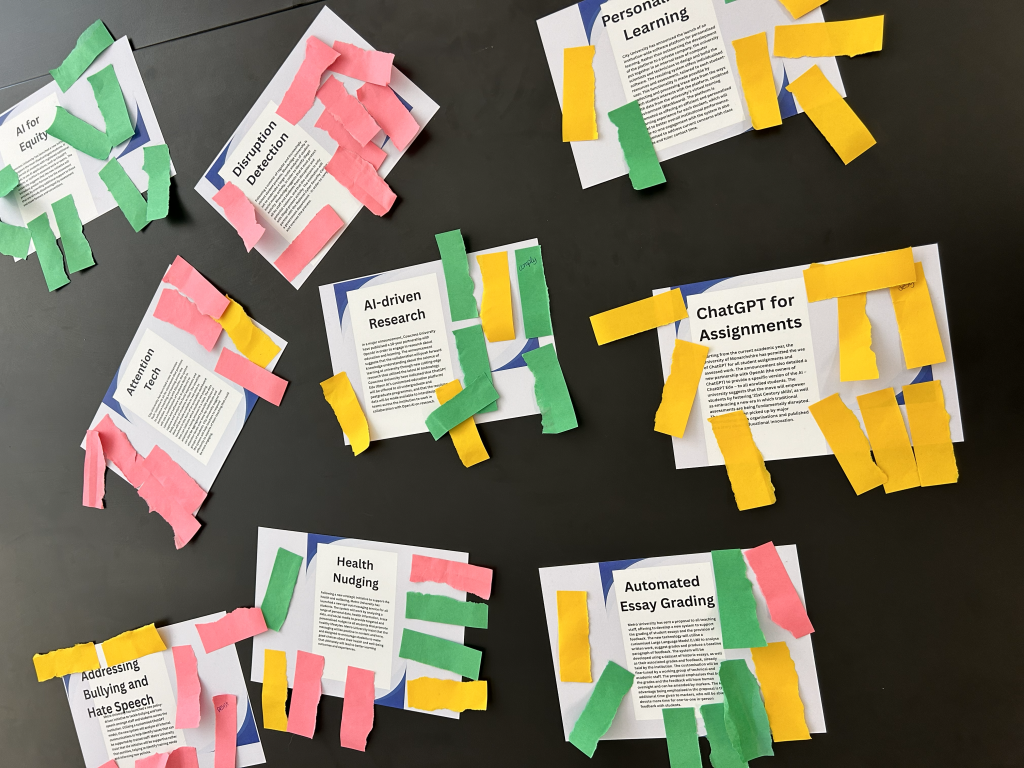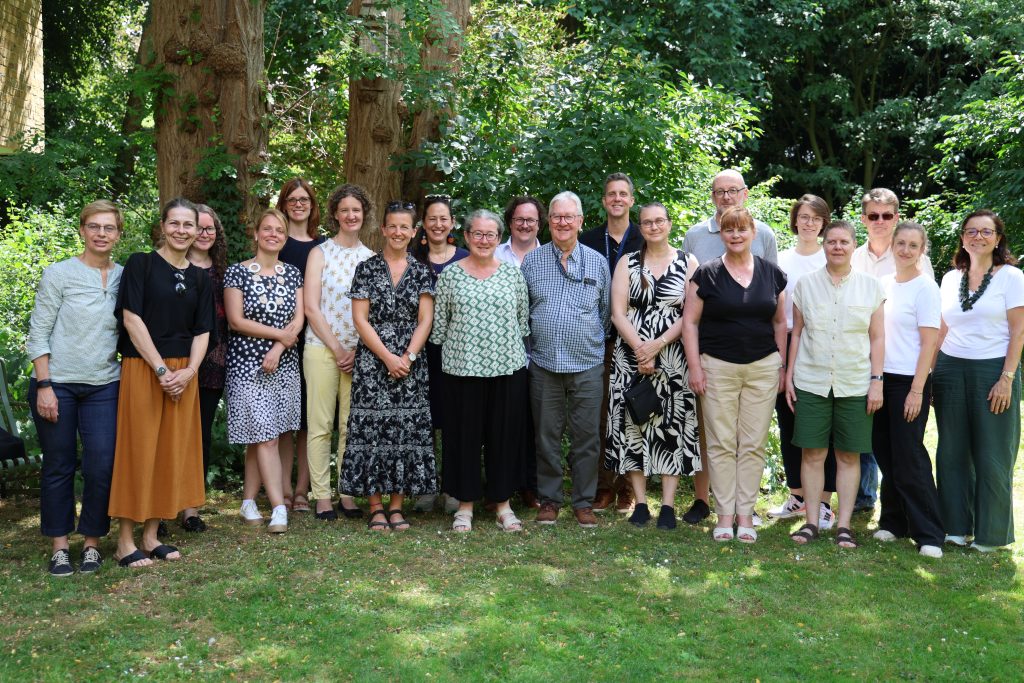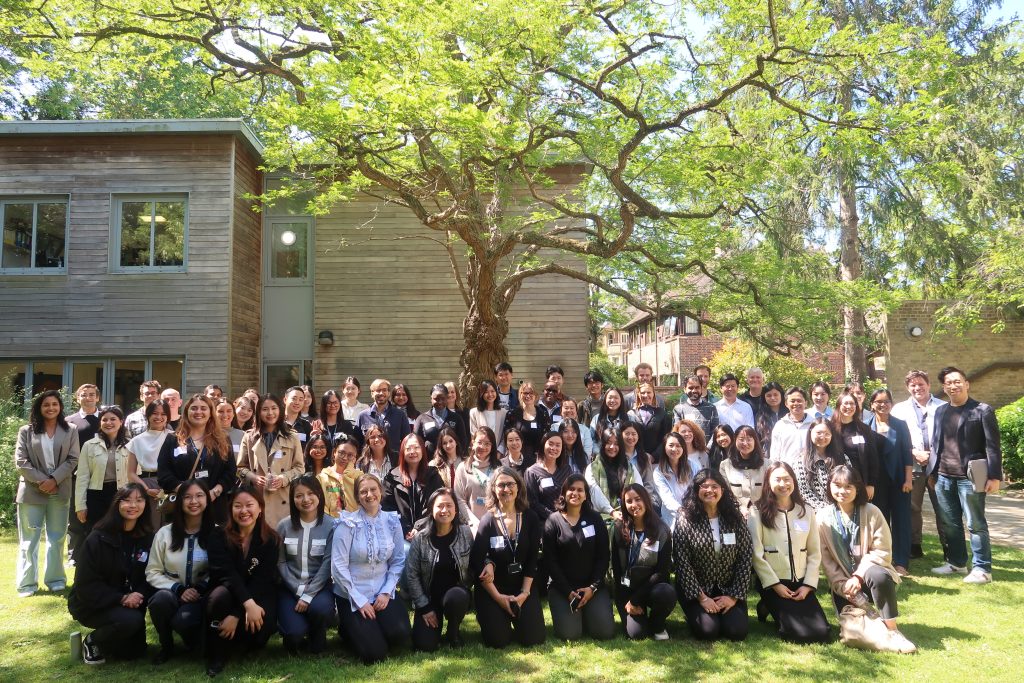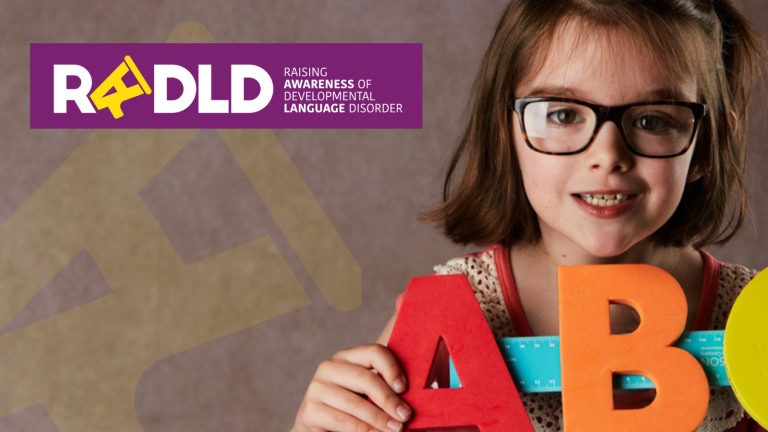
You can’t see DLD – but it is time the world did
Written by: Natalie Waters
Imagine finding it hard to follow discussions, express your ideas, or join in conversations with friends, not because you do not have things to say, but because words and sentences themselves are difficult to process. For around 1 in 14 people, this is the daily reality of living with Developmental Language Disorder (DLD).
DLD is a hidden yet common lifelong condition that affects a person’s ability to understand and use spoken language. Unlike speech difficulties that can be seen or heard, the challenges of DLD are often invisible. This year’s Raising Awareness of Developmental Language Disorder (RADLD) Day, on 17th October 2025, carries the theme “You Can’t See DLD.” It calls on us all – educators, employers, policymakers, and families – to make the invisible visible, and to ensure people with DLD get the understanding and support they deserve.
Although DLD is more common than autism, dyslexia or ADHD, it remains under-recognised. Many children and young people with DLD go through school misunderstood or mislabelled, and the lack of awareness extends far beyond the classroom. People with DLD are six times more likely to experience anxiety and three times more likely to experience depression than their peers. These challenges can continue into adulthood, influencing education, employment, and wellbeing.
Giving Voice to Those with DLD
Here at the Department of Education, researchers are working to make sure that the voices of people with DLD are heard and that their experiences shape the future of research and practice. The project is part of an international collaboration funded by the Irish Health Research Board which aims to improve the quality and fairness of research into DLD. It is led by Professor Pauline Frizelle, University College Cork, Dr Carol-Anne Murphy, University of Limerick and Professor Cristina McKean, University of Oxford.
Too often, studies that test language or communication interventions do not clearly describe the children who take part. Details such as their background, or specific communication needs are often missing. This makes it difficult to know whether the findings apply to children from different communities or in different circumstances.
To change this, the team at Oxford are asking young people with DLD, their families, and adults with lived experience a simple but powerful question: “What do you think researchers need to tell us about the children who take part in their studies?”
By involving those directly affected, the team hopes to develop new reporting guidelines that ensure research is inclusive, transparent, and genuinely useful to families and professionals.
Research that Listens
The project is using creative and accessible methods to involve participants. For children and young people, workshops will include drawing, sorting activities, and small-group discussions that help them share their views in whichever way feels most comfortable. Parents, carers, and adults with DLD will take part in structured discussions designed to ensure that every voice is heard.
These approaches are vital because DLD can make it harder for participants to express ideas in traditional interviews or surveys. As Professor McKean explains, “We want to make research with – not just about – people with DLD. Our aim is to learn directly from their experiences of what matters most.”
The study is also guided by an advisory group that includes individuals with DLD, parents and educators, ensuring that decisions are informed by lived experience at every stage.
Why Awareness Matters
Making DLD visible means recognising that language is central to participation in school, work, and social life. Small changes – such as giving people more time to respond, using clear instructions, or checking understanding – can make a huge difference.
As Stephen Parsons, Chair of the international RADLD campaign, puts it: “By creating supportive, inclusive, and language-aware environments, we reduce anxiety and open the door for people with DLD to grow and thrive.”
The Oxford research team hopes that by highlighting the diversity of people who live with DLD, and the importance of representing that diversity in studies, future interventions will better meet real-world needs.
Find Out More
Raising Awareness of DLD Day is marked in more than 60 countries worldwide. You can learn more about DLD and access resources for educators, families, and employers at www.radld.org.
To learn more about the international TICLD (The Intervention Consensus for Language Disorders) project, visit https://www.ucc.ie/en/ticld/. The Oxford arm of the project is led by Professor Cristina McKean, Dr Cecilia Zúñiga-Montanez, Maria Karampela and Natalie Waters, who are working to ensure that the voices of children, young people, and families inform the way research into DLD is conducted around the world.
